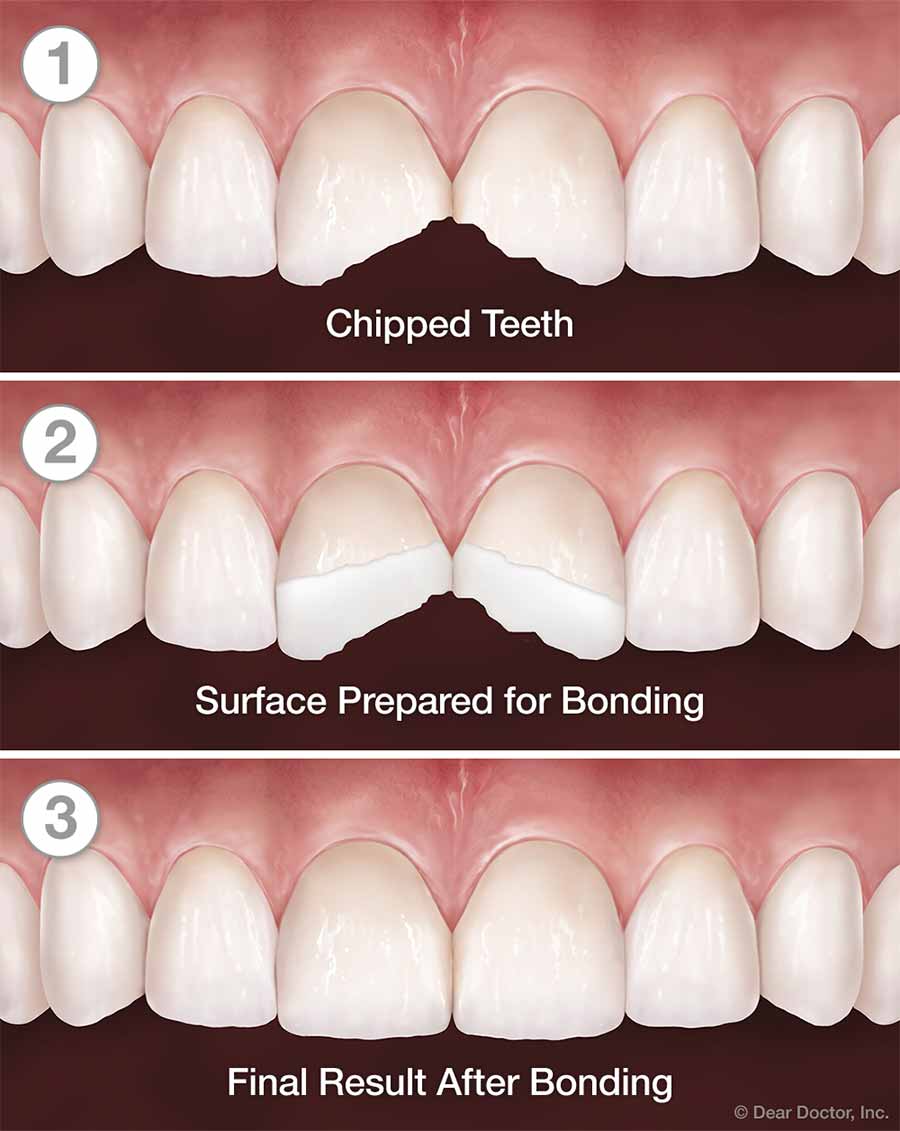A chipped tooth is a common dental problem that can occur due to various reasons, such as biting down on hard objects, accidents, or teeth grinding. While a chipped tooth may not always be painful, it can affect the appearance of your smile and lead to further dental issues if left untreated. Therefore, it’s essential to address a chipped tooth promptly and explore the available treatment options.

Image: www.flossy.com
Understanding the Cost of Fixing a Chipped Tooth
The cost of fixing a chipped tooth can vary depending on several factors, including the severity of the chip, the location of the chipped tooth, the type of treatment required, and the geographical location of the dental practice. Here’s a general overview of the cost ranges for different treatment options:
-
Dental bonding: This is a relatively inexpensive option for repairing minor chips. It involves applying a tooth-colored composite resin to the chipped area and shaping it to match the surrounding tooth. The cost typically ranges from $100 to $300 per tooth.
-
Veneers: Veneers are thin porcelain shells that are bonded to the front surface of the chipped tooth. They provide a more durable and natural-looking restoration compared to bonding. The cost of veneers can vary from $500 to $2,000 per tooth.
-
Crowns: Crowns are tooth-shaped caps that cover the entire chipped tooth. They are commonly used when the chip is extensive or the tooth has undergone root canal treatment. The cost of a crown can range from $1,000 to $3,000 per tooth.
Treatment Options for Chipped Teeth
The appropriate treatment option for a chipped tooth depends on the severity of the chip and the patient’s individual needs. Here are some of the common treatment methods:
-
Dental bonding: This is a conservative approach that involves applying a tooth-colored resin to the chipped area. Bonding is a less invasive procedure compared to veneers or crowns and can be completed in a single visit. However, it may not be suitable for large chips or teeth that have undergone significant damage.
-
Veneers: Veneers are ideal for repairing larger chips or discolored teeth. They are custom-made to match the shape and color of your natural teeth, providing a natural-looking and durable restoration. Veneers are often used to enhance the appearance of multiple teeth simultaneously.
-
Crowns: Crowns are recommended when the chip is extensive or the tooth has been weakened due to decay or trauma. They provide full coverage and protection for the damaged tooth, restoring its strength and function. Crowns are typically made of porcelain, ceramic, or metal alloys and can last for many years with proper care.
Choosing the Right Treatment Option
Selecting the most suitable treatment option for a chipped tooth requires careful consideration of the following factors:
-
Severity of the chip: The size and location of the chip will determine the appropriate treatment method. Minor chips may be repaired with bonding, while larger chips or those that affect the tooth’s structure may require veneers or crowns.
-
Desired aesthetic outcome: If the chipped tooth is visible when smiling or speaking, you may prefer a more aesthetically pleasing treatment option like veneers. Bonding may be a more cost-effective choice for chips that are less noticeable.
-
Tooth function: If the chipped tooth is involved in biting or chewing, the restoration should be durable and able to withstand occlusal forces. Crowns are often the preferred choice in such cases.
-
Cost: The cost of the treatment is an important factor to consider. Bonding is generally the most affordable option, followed by veneers and crowns. Discuss the cost and payment options with your dentist to determine the best treatment plan within your budget.

Image: ar.inspiredpencil.com
Importance of Seeking Prompt Treatment
Ignoring a chipped tooth can lead to further complications, such as tooth decay, nerve damage, or even tooth loss. Therefore, it’s essential to seek prompt treatment to prevent these potential issues. Your dentist can assess the severity of the chip and recommend the most appropriate treatment option to restore the health and appearance of your tooth.
How Much To Fix Chipped Tooth
Conclusion
Fixing a chipped tooth is essential for maintaining good oral health and a confident smile. The cost of treatment can vary depending on the severity of the chip, the location of the tooth, the type of treatment required, and the geographical location of the dental practice. It’s important to consider the factors discussed above and consult with a qualified dentist to determine the best treatment option for your individual needs. Remember, prompt treatment can help prevent future complications and preserve the health and beauty of your smile.